Our Story
Hmong American farmers occupy a unique place in the history of Minnesota’s local foods movement. Since Hmong refugees began resettling from Laos and Thailand to Minnesota in the 1970s as political refugees after the Vietnam War, many families have relied on their agricultural heritage to make a living growing produce and flowers for local farmers markets.
By the late 1980s, Hmong farmers had revitalized the Saint Paul and Minneapolis Farmers Markets, transforming them into some of the most vibrant markets in the country, while also changing Minnesota’s taste buds for Thai chili peppers and Chinese bok choy. As hard working farmers, they provided the fresh produce that fueled the exponential growth of farmers markets into suburban communities and urban corridors, and greatly increased the supply of nutritious, affordable food.
Today, Hmong American farmers are leading the Twin Cities local food economy, making up more than 50% of all the farmers in metropolitan farmers markets. Hmong farmers are at the center of a Minnesota-based local foods economy that according to AgStar Financial Services generates over $250 million in annual sales. Without Hmong farmers, this explosion of awareness and interest in local foods and small-scale farming in Minnesota would not be possible.
Still, Hmong farmers continue to face many barriers to accessing land, financing, training, research and markets and building sustainable family businesses.
In 2011, a group of Hmong American farming families formed the Hmong American Farmers Association (HAFA) because we believed the best people to support Hmong farmers are Hmong farmers themselves. We make sure we are all lifted up, when those who are affected by an unfair food system, to lead the change we seek. We formed with the mission to advance the prosperity of Hmong American farmers through cooperative endeavors, capacity building and advocacy.
As part of an integrated approach to community wealth building, HAFA owns and manages a 155-acre farm in Dakota County, where member families can lease land, hone their business and agricultural practices, and sell produce to the HAFA Food Hub.
The HAFA Food Hub aggregates and sells members’ produce through community-supported agriculture (CSA) shares, schools, retailers and institutions.
Through collective farm business development, education and advocacy, we are building paths towards, not just income generation, but wealth creation and a sustainable and fair food economy for all.
Our Approach
HAFA’s work is grounded in strong communitarian values and based around a Whole Food Model, which acknowledges that all aspects of the farm-to-fork system must be addressed simultaneously to truly build intergenerational and community wealth. There are five distinct but interrelated components in the model: land access, new markets, trainings and capacity building, financing, and research and data collection. What makes HAFA’s model unique is that it works with cohorts of experienced Hmong farmers and employs community organizing tactics to truly get at systems change.
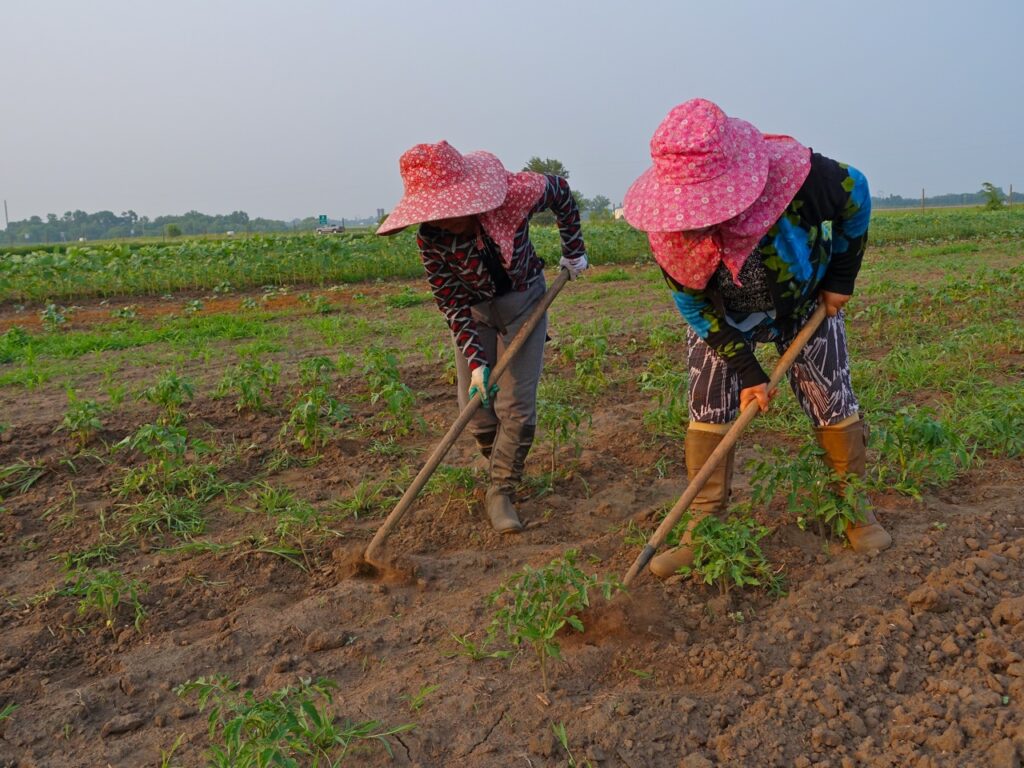
HAFA Programs
Minnesota has one of the largest Hmong American populations in the United States, and many of them farm. According to a recent feasibility study funded by the United States Department of Agriculture (USDA), Hmong American farmers made up over half of all producers at farmers markets located in the Twin Cities’ metropolitan area. But Hmong farmers face multiple challenges to farming, including access to affordable and long-term land near metropolitan areas, access to equipment and capital that can increase the efficiency of their operations, access to trainings to enrich their knowledge, access to cool and dry storage facilities that can elongate the shelf life of their produces, and access to alternative markets (besides the farmers markets) that can diversify their income. HAFA is working hard to alleviate these challenges.
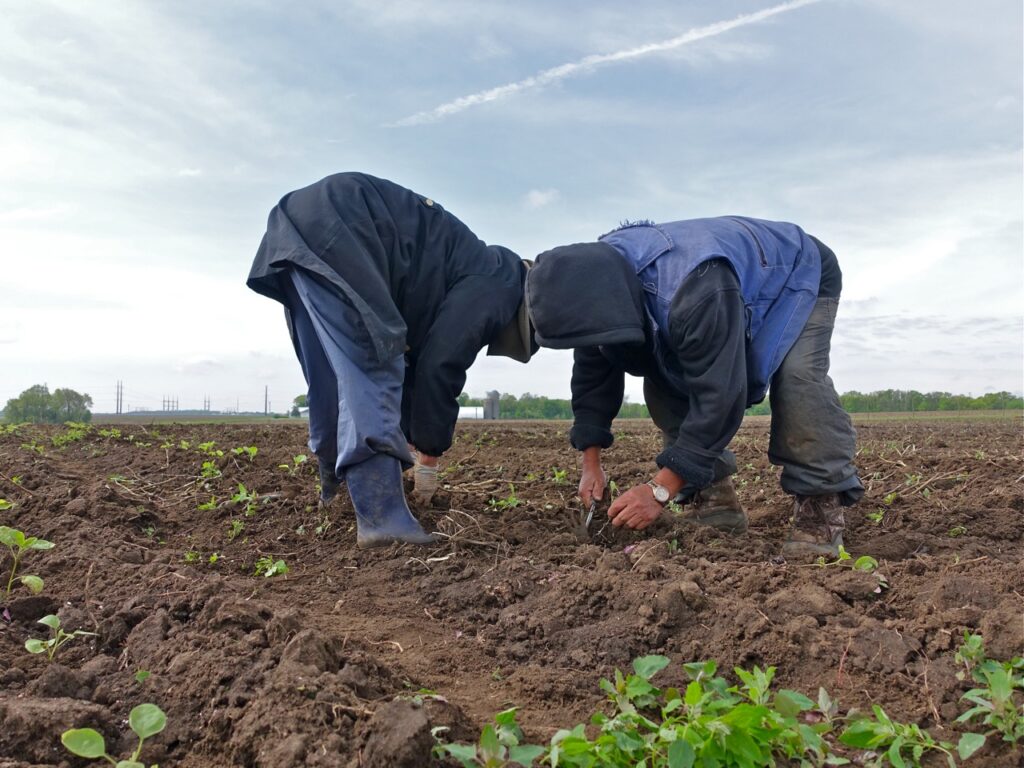
Land Access
The most pressing challenge for Hmong farmers is gaining long-term access to farm land that is affordable and near their homes. Without access to land, Hmong farmers cannot invest in specialty produce that would garner higher profit margins or access federal loans and crop insurance programs that would protect them from climate change. HAFA is working with public and private entities to lease or purchase large tracts of farmland and turn them into agricultural land trusts through the assistance of conservation easements. In fact, in 2014 HAFA just launched the HAFA Farm–a 155 acre incubator and research farm located in Vermillion Township. In this way, Hmong farmers can get access to farmland near metropolitan areas, and large tracts of lands will be preserved for food production.
Business Development
It is difficult for Hmong farmers to access capital and credit. Without these resources, Hmong farmers cannot invest in equipment that could make their operations more efficient and productive. To combat these challenges, in 2014, HAFA launched a business development program with the Eastside Financial Center (a program of Lutheran Social Service of Minnesota). This program offers HAFA members the opportunity to undergo credit and financial assessments, attend financial management trainings, and meet one-to-one with farm management instructors to write business plans and generate financial statements. Moreover, this program has a matched savings component where farmers can save up to $2,000 in an IDA and have that amount matched 1:1. With the support of organizers, HAFA’s farmers can leverage those funds to purchase needed equipment with a micro-loan from AgStar Financial Services, Farm Service Agency (FSA), or the Minnesota Department of Agriculture (MDA). This comprehensive, multi-dimensional business development program is the only one of its kind in the country and a real model for community development.
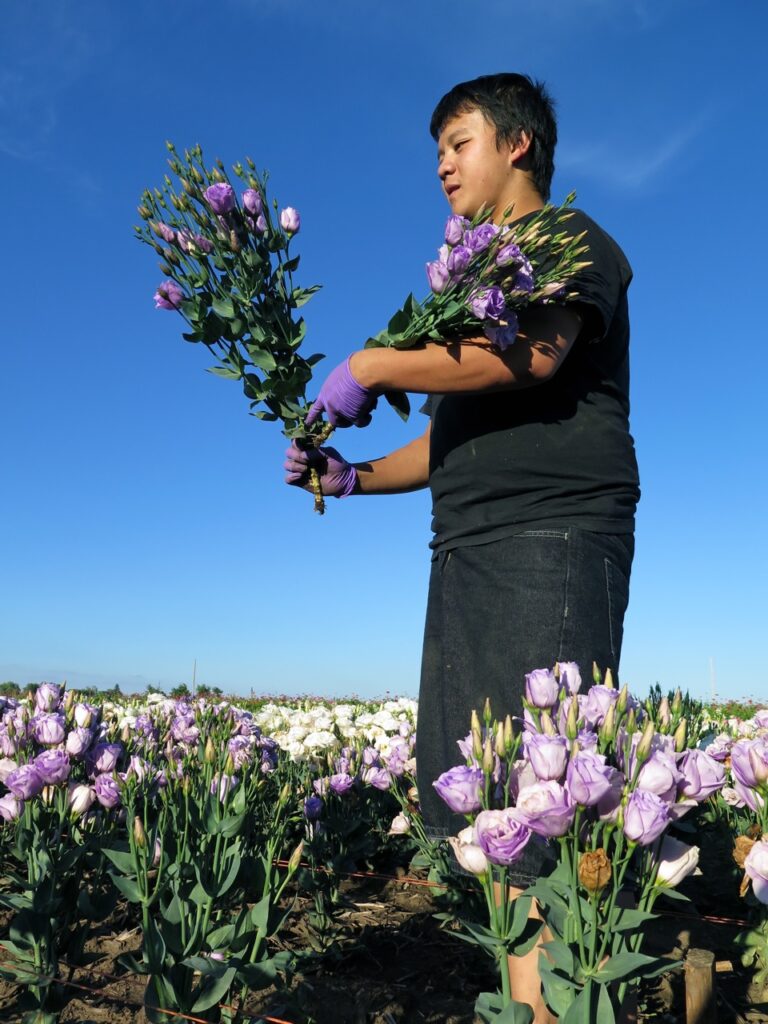
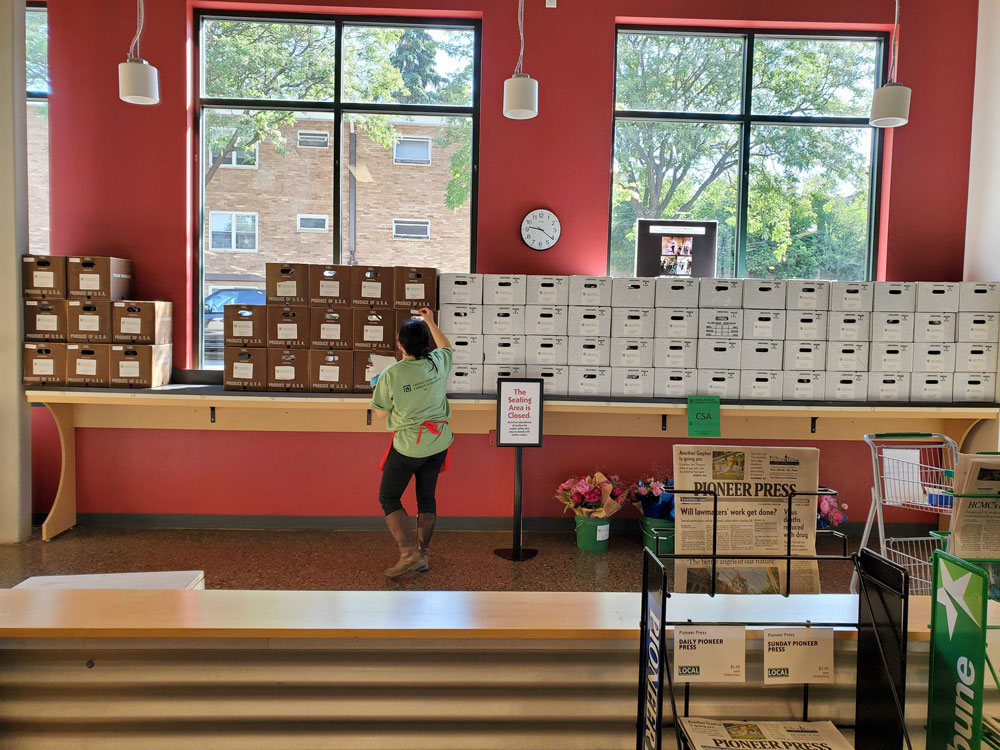
Alternative Markets
The majority of Hmong farmers sell exclusively to the farmers markets. Unfortunately, farmers who earn sales from only one market are very vulnerable to any shocks in that market. The focus of the Alternative Markets Program (AMP) is to gather fresh, locally grown produce from HAFA’s farmers and teach them how to sell the produce to local institutions and businesses like hospitals, schools, food processors, distributors, and grocery stores, or directly to consumers through community supported agriculture (CSA). This model has already expanded sales for HAFA member farmers and has increased accessibility to locally grown produce for metropolitan residents.
Research
Farming is dynamic, and constantly evolving. HAFA works to ensure that our members have access to the latest farming techniques, ranging from cover crops and living mulch, to wind break projects and high tunnels. In 2013 the organization teamed up with the Minnesota Fruits and Vegetable Growers Association, the Minnesota Department of Agriculture and the Minnesota State College and Universities system to conduct a variety of research projects from longitudinal research on the state of Hmong farmers in Minnesota to the effects of cover crops in vegetable production on soil and water quality.
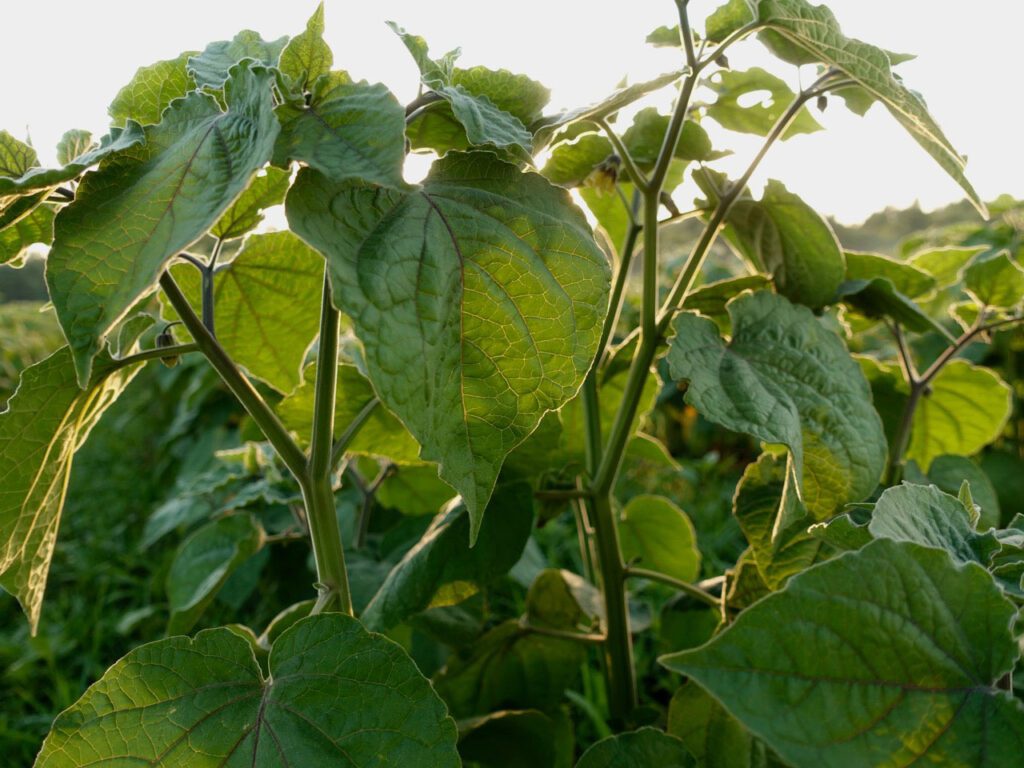
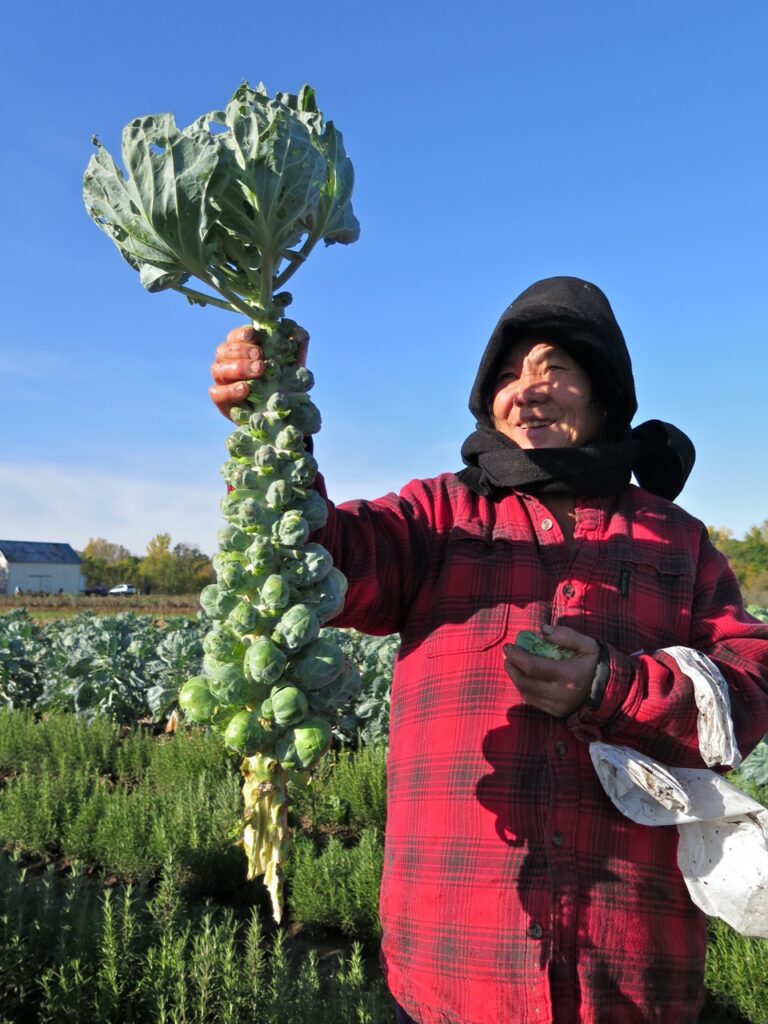
Trainings
HAFA and its community partner, the Latino Economic Development Center, received a grant from the United States Department of Agriculture (USDA) to develop and test a bicultural and bilingual training program aimed at increasing the farming and business acumen of immigrant farmers. Since its inceptions, HAFA’s training program has conducted over 20 workshops and trained over 500 people on an array of topics from soil health and food safety protocols to high tunnels and farm machinery.

 We are dedicated to advancing the prosperity of Hmong farmers through cooperative endeavors, capacity building and advocacy. HAFA was started and is led by family farmers. Organizing is in our DNA.
We are dedicated to advancing the prosperity of Hmong farmers through cooperative endeavors, capacity building and advocacy. HAFA was started and is led by family farmers. Organizing is in our DNA.